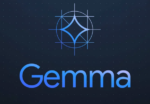Mozilla releases Rust 0.11.0
Mozilla has announced version 0.11.0 of Rust, its programming language compiler and assorted tools with a focus on performance, concurrency and safety. This new release focuses on polishing the type system and libraries, and it marks the complete removal of the “@” and “~” syntax in favor of “Box” and “Gc” library types. Other features include a new sandbox for running and sharing Rust code examples online; a reworked TaskBuilder API; struct fields are now private by default; statics now allow blocks/items in definition; standard libraries are now a “façade” over a number of underlying libraries to make development faster; improved debug info; and the compiler now suggests how to annotate lifetimes if an error occurs. — Christina Mulligan
Documentary project on Kickstarter hopes to show the impact of apps
A new project on Kickstarter, “App: The Human Story,” wants to provide an in-depth look at being a human in a technology world. The documentary focuses on applications because the creators said it has become a new art form of their generation.
“Although some apps seem trivial and inconsequential, the details of our software say a lot about who we are as humans. Apps have changed how we live our lives and they will undoubtedly shape our future,” the project creators wrote on their Kickstarter page. — Christina Mulligan
Learning to code by playing cards
There are already a number of ways to help people learn a programing language, but one Kickstarter project is taking a new approach.
Code Cards is a card game that aims to teach players how to code. The cards have questions on the front relevant to a certain language, and on the back are the answers to those questions. It can be played as a multiplayer game or by one person. It covers HTML5, CSS 3, JavaScript, and Ruby 2 and 4. — Christina Mulligan
Google DevArt gallery opens in London
The winning interactive artists of Google’s DevArt contest are finally ready to exhibit their coded works of art via Barbican’s London Digital Revolution Exhibition.
Google announced the opening of the gallery in a blog post. The exhibition consists of four interactive installations created by six coding artists: “Play the World” by Zach Lieberman, “Wishing Wall” by Varvara Guljajeva and Mar Canet, “Co(de) Factory” by Karsten Schmidt, and “Les Métamorphoses” by Béatrice Lartigue and Cyril Diagne. The artwork has all been created using Google software as well as other open-source tools, including Google Cloud Platform, Chrome Apps, Node.js, openFrameworks and WebGL.
Google’s DevArtists aren’t the only coding artists out there. Check out our feature on several other artists creating vivid artwork with code. — Rob Marvin





